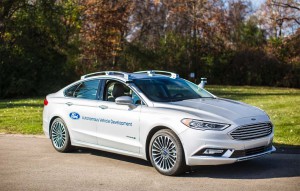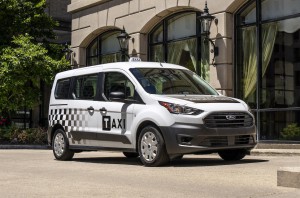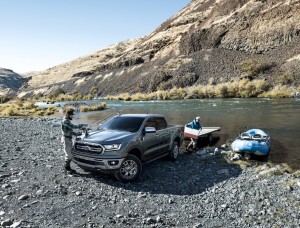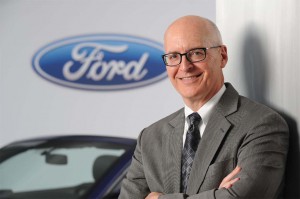Talks between Ford and Volkswagen are covering far more territory than originally planned, when the two signed a memorandum of understanding in June that initially focused on joint development of commercial vehicles.
While Ford officials have told TheDetroitBureau.com there is no thought to an exchange of equity, virtually everything else seems at least open for discussion, with a number of key ventures being considered. According to various U.S. and European sources, these include joint development of a small pickup, cooperation on electrified and autonomous vehicles and possibly even collaboration on sales and marketing in trouble-spot markets, such as Europe and Latin America.
Several reports have suggested that a major announcement could be in the offing, and a source close to the talks told TheDetroitBureau that “There could be an update by the end of the year.” But that person stressed that not all the discussions underway are likely to be resolved immediately, and could be spread out over months, even years – even “if everything (being negotiated) comes true.”
(Click Here for our initial story on the Ford/VW discussions.)
Ford and VW have had on-again, off-again relations for decades. In fact, the late Henry Ford II, the grandson of company founder Henry Ford, turned down an offer to take over the heavily damaged assets of Volkswagen in the wake of World War II. Perhaps the closest tie-up came in the 1980s and 1990s, when Ford and VW teamed up in Latin America. The Autolatina venture ended in 1996.
Some analysts suggest a similar project could come in several markets, including South America and Europe, where both carmakers have been struggling.
New reports from Germany indicate the companies are also discussing ways to work together to reduce the massive cost burden of developing electrified and autonomous vehicles. VW alone said it expects to invest $25 billion on batteries and related componentry by 2025, and several times as much on the development of electrified and self-driving vehicles.
These are “all logical areas to explore,” said one source, reflecting a report in Germany’s largest business daily, Handelsblatt. “The world’s biggest and fifth-biggest automakers want to join forces to move into electric vehicles and autonomous driving,” the paper reported, while suggesting the upcoming, “wide-ranging partnership…stands to change the German industry.”
Since announcing what was described as a “strategic alliance” on June 19, the two companies have been relatively quiet about details though, at the time, Thomas Sedran, the CEO of VW’s commercial vehicles unit told trade publication automotive news, “When we finalize this alliance, you can be assured it will be balanced. There is no junior, nor senior, partner, but rather two companies at eye level that will closely cooperate with one another.”

Some sources indicate the two carmakers are also looking at collaborating on autonomous and electrified vehicle development.
Perhaps because of a lack of hard details, speculation has been running rampant about how far any strategic alliance could go. Ford Chief Financial Officer Bob Shanks fed the flames with a comment to the Bloomberg News Service late last month, suggesting that, “We’re having a very broad set of discussions about how we can help each other around the world.”
He added that the possible “collaboration isn’t being limited in any way whatsoever.”
But Mark Truby, the head of communications at Ford offered a subsequent note of clarification, telling TheDetroitBureau.com that, “We are not considering any equity swap or cross-ownership.”
The likely relationship, according to a source, may look more along the lines of what has developed over the last nine years between Daimler AG and the Renault-Nissan-Mitsubishi Alliance. The German company does not have an equity stake but frequently discusses a wide range of projects with the Alliance. Over nearly a decade, the partners have jointly developed platforms for small Renault and Smart cars, as well as Mercedes-Benz and Infiniti models. Nissan engines are used in some American-made Mercedes sedans, and Mercedes and Infiniti share a plant in Mexico, among other things.
(Ford set to test autonomous vehicles in Chinese joint venture. Click Here for the story.)
A similar, select alliance may be in the offing between General Motors and Honda. They announced a partnership to develop and manufacture fuel-cell technology in January 2018 and just added another project, Honda planning to invest in GM’s Cruise Automation subsidiary and help fund autonomous vehicle development.
According to Handlesblatt, at least some of the projects under discussion between Ford and VW could go before the German maker’s all-powerful Supervisory Board on November 16th. It is unclear if or when the Ford Board of Directors would weigh in, but several sources have now told TheDetroitBureau that at least some projects could be revealed by year-end.
(VW among sales leaders in weak October in U.S. market. Click Here for more.)



